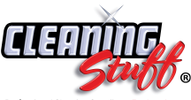The Dos and Don’ts of Cleaning Warehouse Floors
1st Apr 2024
Warehouse floors are the backbone of any industrial operation, where they encounter daily traffic, heavy machinery, and relentless activity. Properly maintaining them supports operational efficiency while prioritizing employee safety. Here, we’ll guide you through the dos and don’ts of cleaning warehouse floors to keep your facility in top condition.
Do Regularly Sweep and Dust Mop
Loose debris can quickly accumulate on warehouse floors, posing a risk to machinery and personnel. Regular sweeping and dust mopping prevents scratches and ensures your floor remains pristine. This simple practice helps maintain a safe working environment and extends your warehouse floor’s lifespan.
Don’t Use Harsh Chemicals
Using potent chemicals to tackle stubborn stains might be tempting, but these can cause more harm than good. Harsh chemicals can damage flooring materials and pose serious health risks to your staff. Instead, rely on cleaning supplies specifically for warehouse floors, effectively cleaning without adverse effects.
Do Use Industrial-Grade Cleaners and Degreasers
Industrial-grade floor cleaners and degreasers can tackle the tough stains and spills commonly found in warehouses. Products like Simple Green Crystal Industrial Strength Cleaner Degreaser can break down oil, grease, and other stubborn residues without damaging the floor. Using the right industrial cleaning supplies ensures your floors remain clean.
Don’t Neglect Spills or Leaks
Ignoring spills or leaks can lead to many problems, including safety hazards like slips and falls and permanent damage to the floor. For example, chemicals seeping into flooring can cause erosion. Promptly addressing spills helps your floors remain in good condition. It’s also best to have a protocol for dealing with spills efficiently and safely.
Do Implement a Schedule for Deep Cleaning
While daily maintenance is essential, deep clean warehouse floors with scrubbers and buffers regularly. These machines remove dirt and grime that daily cleaning can miss, restoring the floor’s appearance and preventing gradual deterioration.
Don’t Overuse Water During Cleaning
While water is necessary for cleaning, using too much can lead to problems. Excess water can seep into the floor, causing structural damage over time. Use water sensibly and implement cleaning methods that don’t introduce more moisture than your floor can handle.
Do Place Absorbent Mats at Entryways
Absorbent mats play a vital role in preventing dirt and moisture from sticking to warehouse floors. Placing these mats at all entryways significantly reduces the amount of debris entering your facility, making maintenance tasks easier and extending the lifespan of your floor.
Facility maintenance teams can maintain a clean and safe workplace by following the dos and don’ts of cleaning warehouse floors. Remember, a well-maintained warehouse floor promotes safety and efficiency and reflects positively on your operation.

